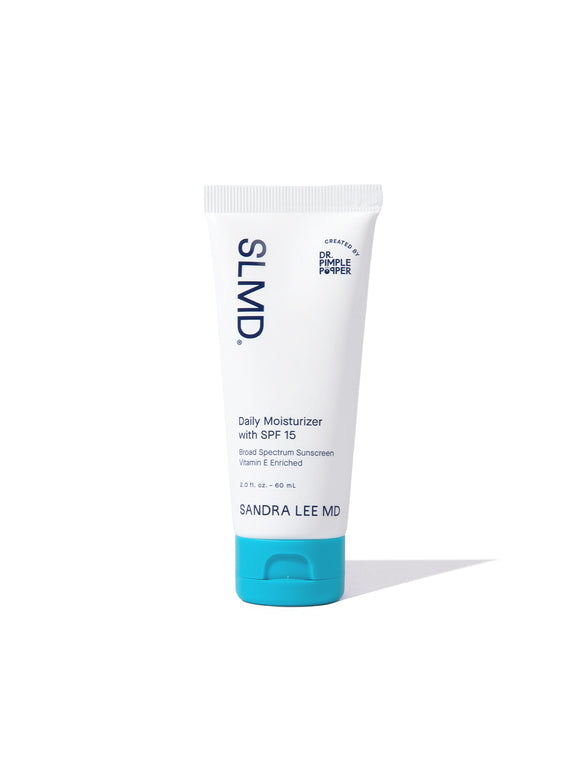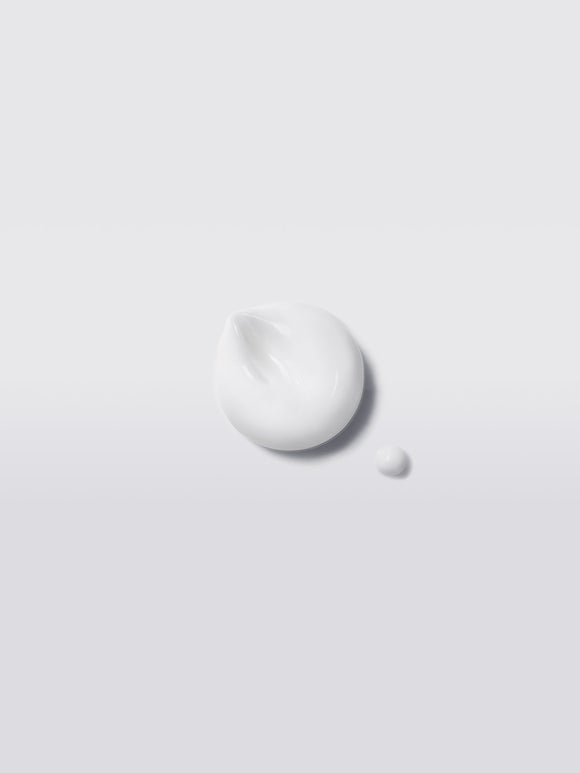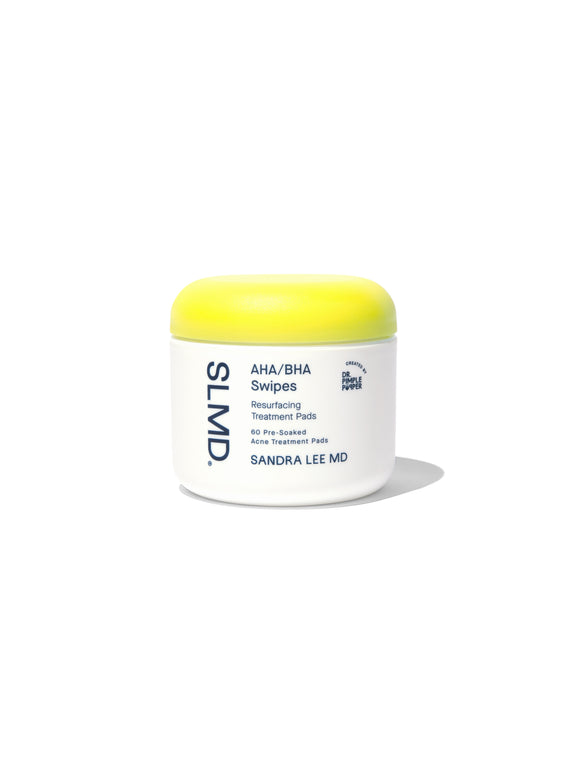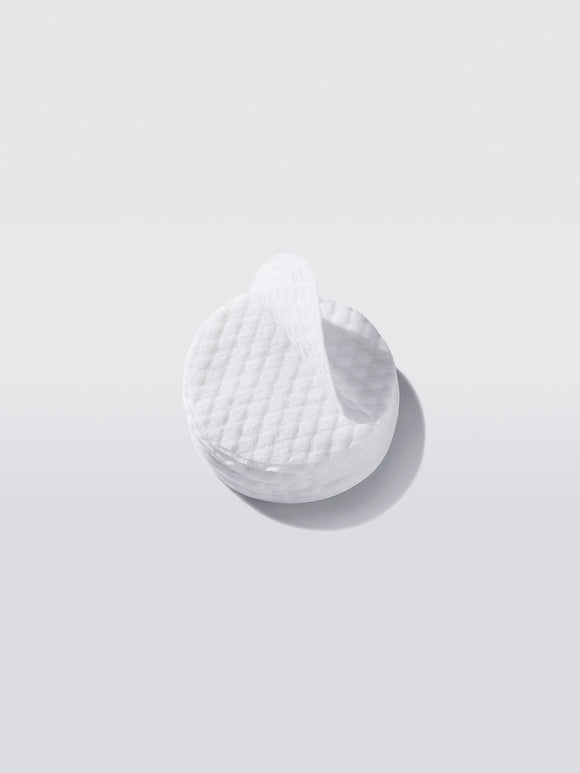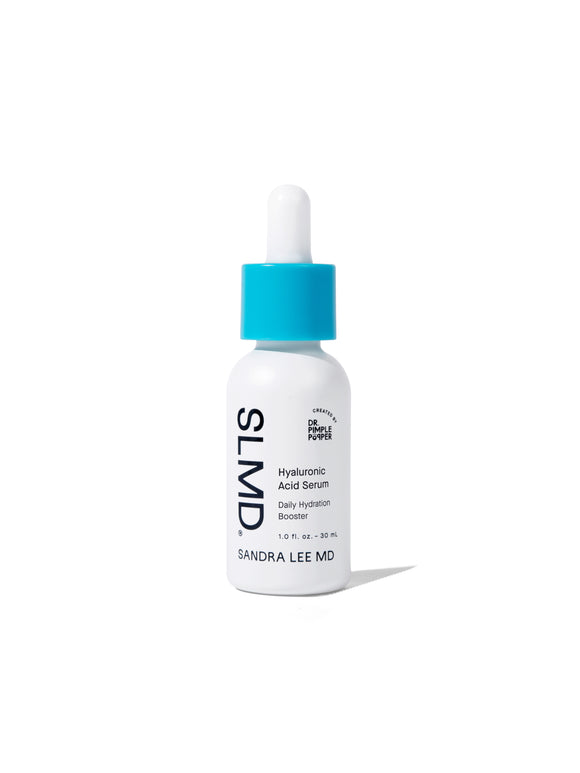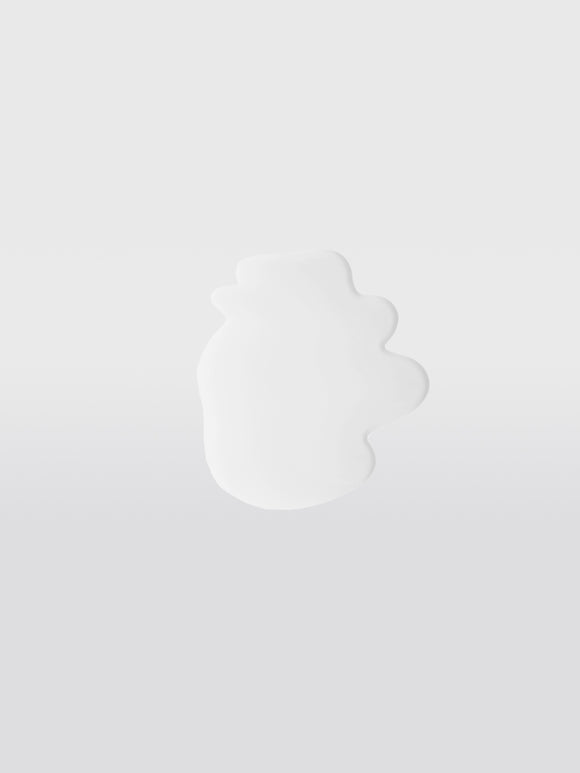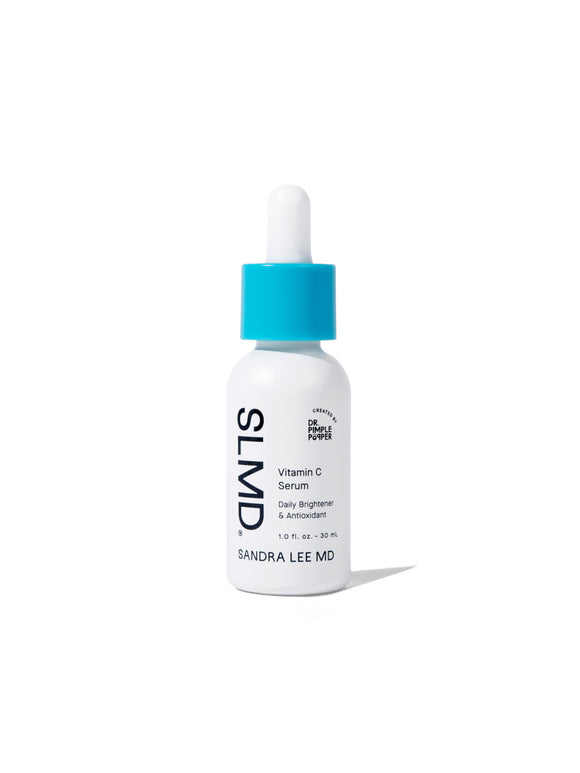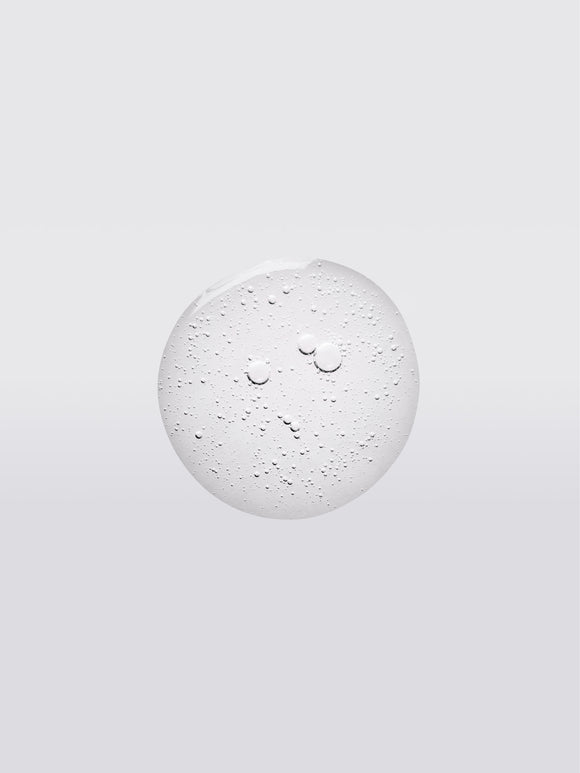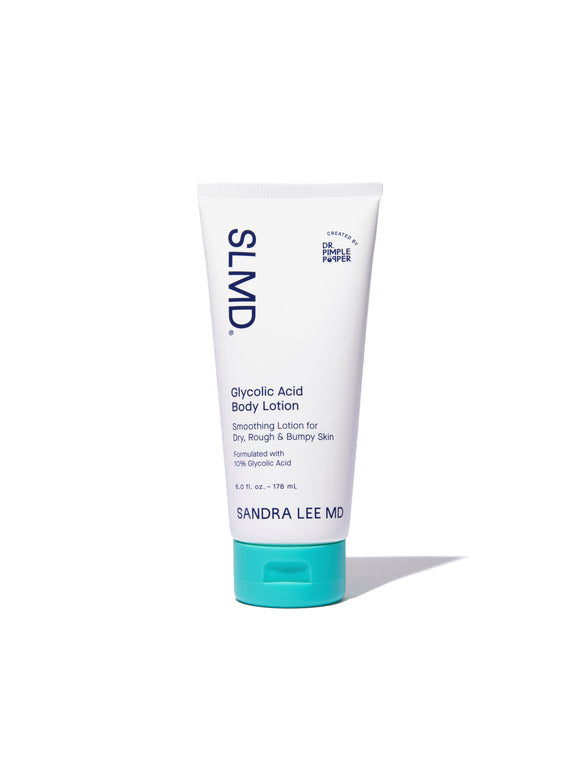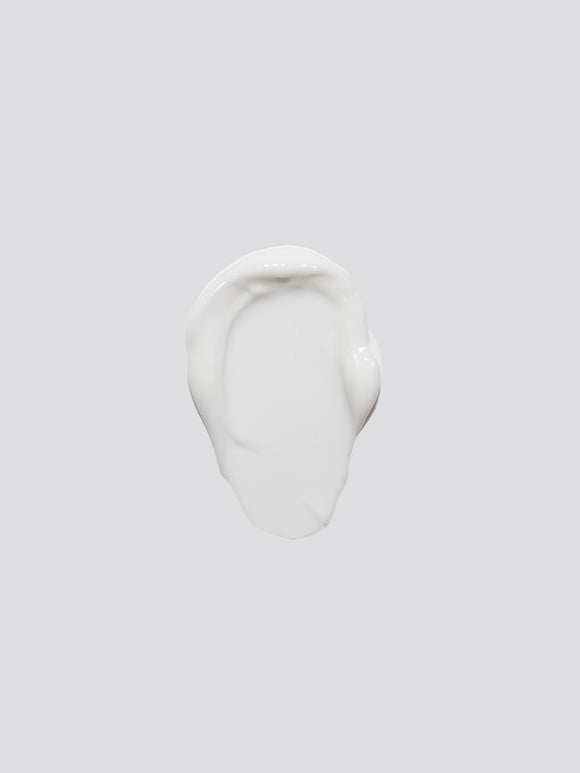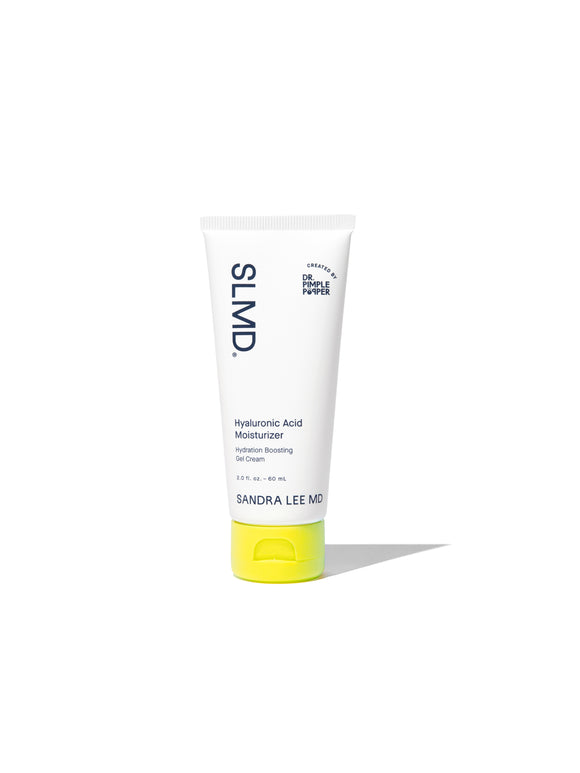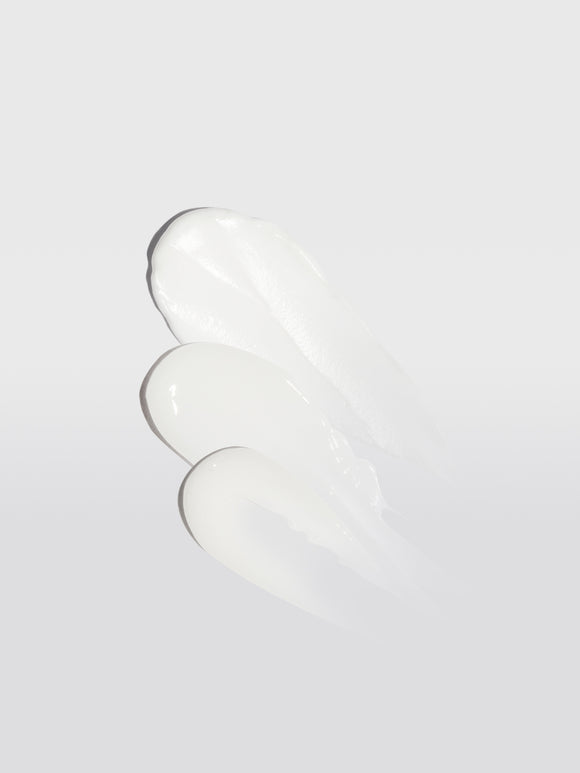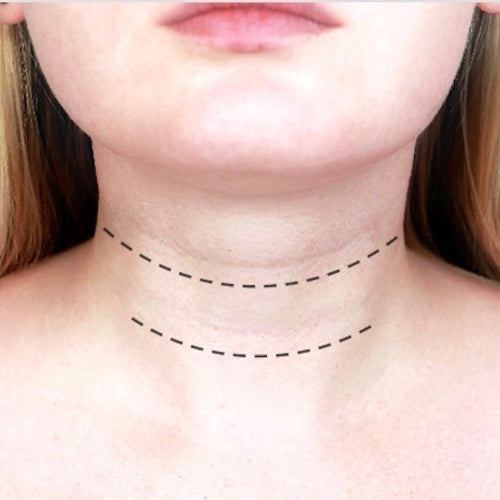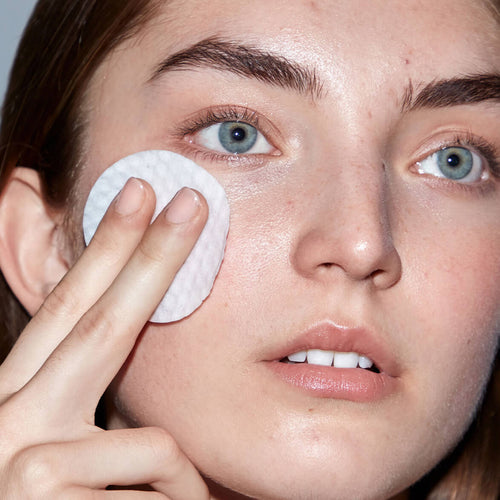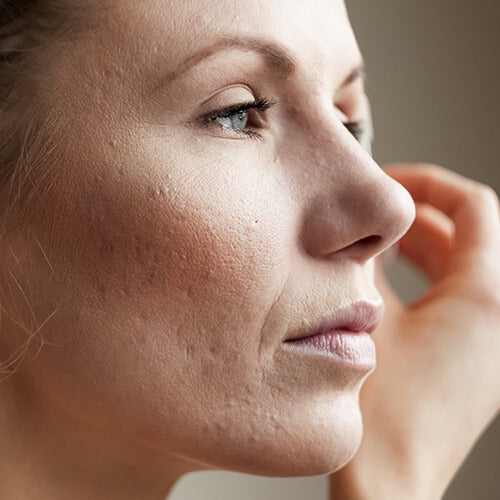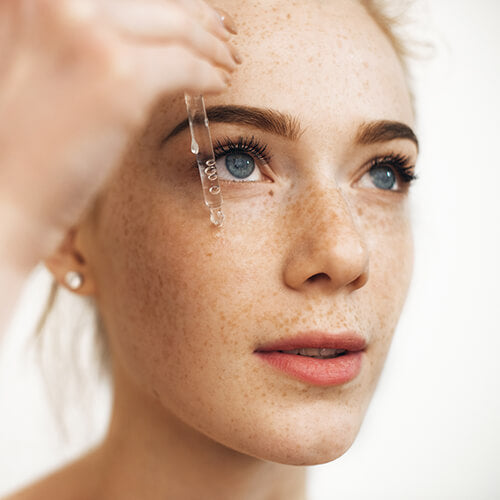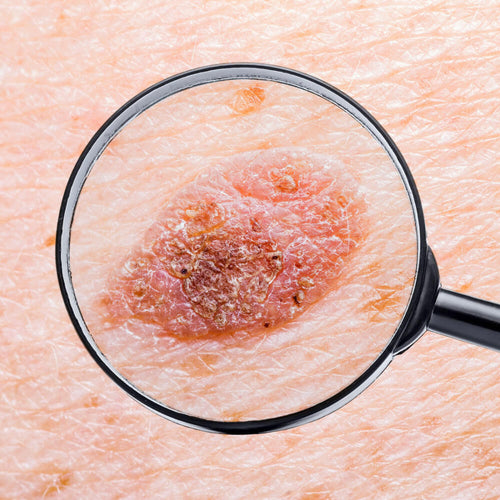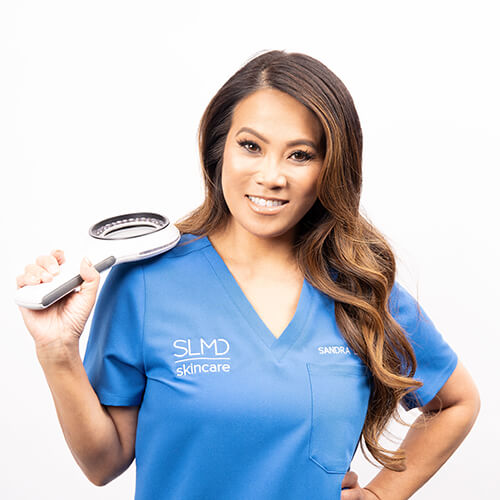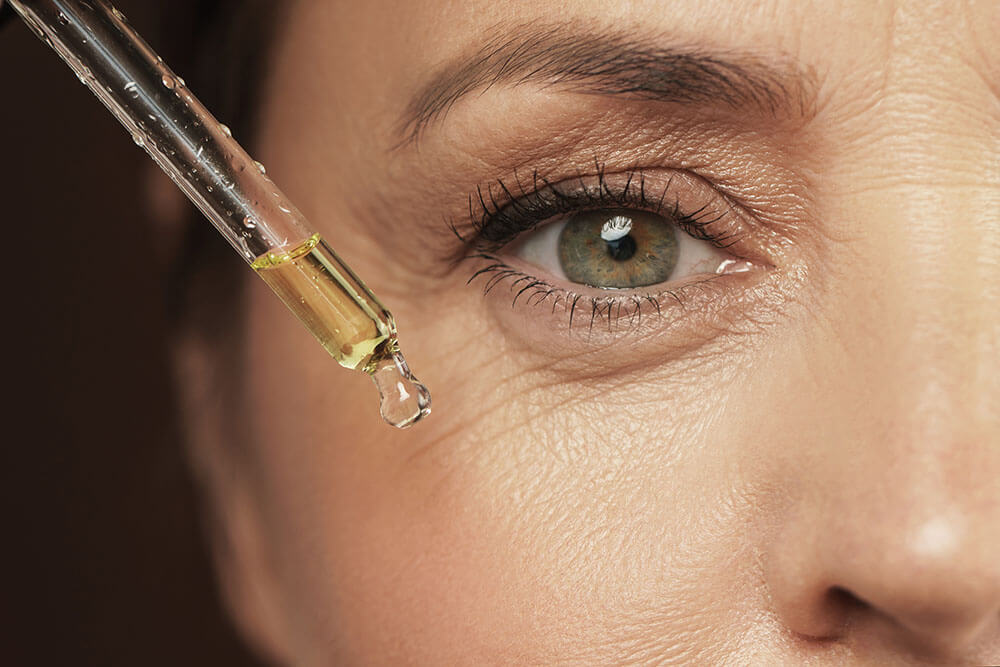
Does Anti-Aging Skincare Work? Science, History, and Controversy
Discover the truth about anti-aging skincare with dermatologist and SLMD Skincare founder Dr. Pimple Popper.
Published:
3 minute read
From Cleopatra’s legendary milk baths to modern-day serums promising wrinkle-free skin, the quest to defy aging has fascinated us for centuries. But in today’s world, where the term "anti-aging" is everywhere, some question its validity. Is anti-aging skincare just a marketing myth, or can certain products genuinely slow down the clock?
With the help of dermatologist and SLMD Skincare founder Sandra Lee, MD (aka Dr. Pimple Popper), we’re diving into the science, history, and evolving conversation around anti-aging skincare.
Article Quick Links
The origins of anti-aging skincare
The desire to maintain youthful skin is far from new. Cleopatra famously bathed in sour milk (rich in lactic acid, an exfoliating AHA), and medieval women applied raw meat masks in hopes of achieving a “healthy glow.”
But the modern concept of anti-aging skincare began to take shape in the late 1980s. With increasing consumer spending power among older women, marketers introduced products claiming to erase wrinkles and turn back time. This led to the creation of an entire industry dedicated to preserving youth — though many early products lacked the scientific backing we have today.
What science says about anti-aging skincare
Skincare products can’t stop the natural aging process, but they can effectively address the visible signs of extrinsic aging — damage caused by factors like UV radiation, pollution, and stress. In fact, extrinsic aging accounts for about 90% of the visible changes we associate with growing older.
To minimize this damage, dermatologists recommend products formulated with science-backed ingredients, including:
- Retinoids: improve skin texture, promote collagen production, and boost cell renewal
- Antioxidants: neutralize free radicals that accelerate skin damage
- Exfoliants: remove layers of damaged skin and reveal fresher, brighter skin beneath
- Sunscreen: shields skin from harmful UV rays, preventing photodamage
SLMD Skincare to try: Retinol Resurfacing Serum, Vitamin C Serum, AHA/BHA Swipes, Glycolic Acid Body Lotion, Daily Moisturizer with SPF 15
For a deeper dive into how skin ages and what you can do to prevent it, check out our blog about How Skin Ages.
Dr. Pimple Popper's Well-Aging Skincare Solutions
The controversy over the term "anti-aging"
While the science behind anti-aging skincare continues to evolve, the term itself has sparked debate in recent years. Some critics argue that “anti-aging” reinforces unrealistic beauty ideals, suggesting that aging is a problem to be solved rather than a natural part of life.
In response, many skincare brands, including SLMD Skincare, are embracing a broader, more inclusive perspective. Terms like “well aging” and “preventing premature aging ” focus on supporting your skin’s health and resilience at every stage of life.
“Aging is natural — and so is wanting to take care of your skin,” explains Dr. Lee. “Anti-aging is about more than just reversing signs of aging; it’s about helping your skin look and feel its best, no matter how old you are.”
By combining effective ingredients with a proactive approach, anti-aging skincare can help protect against premature damage while celebrating healthy, radiant skin.
Can skincare really prevent aging?
Here’s the reality: no skincare product can stop the natural aging process. However, products formulated with the right ingredients can delay many of the visible signs of extrinsic aging.
What skincare can do:
- Protect against UV damage (sunscreen)
- Boost collagen production (retinoids, vitamin C)
- Improve skin texture and tone (AHAs, BHAs)
- Reduce inflammation and redness (niacinamide, antioxidants)
What skincare can’t do:
- Prevent wrinkles caused by repetitive facial expressions
- Counteract the effects of gravity or subcutaneous fat loss
Skincare works best as part of a holistic approach to aging well, alongside habits like wearing sunscreen, staying hydrated, and avoiding smoking.
FAQs about anti-aging skincare
Q: Can anti-aging products prevent wrinkles?
A: They can delay the onset of wrinkles caused by environmental damage, but they can’t eliminate expression lines or natural sagging over time.
Q: What’s the best age to start using anti-aging products?
A: Dr. Lee recommends following a basic skincare routine and incorporating retinol and sunscreen as early as your 20s to prevent premature signs of aging.
Q: Are expensive anti-aging products better than affordable ones?
A: Not necessarily. The key is the active ingredients and the quality of the formulation — not the price tag. Look for science-backed brands like SLMD Skincare.
Q: Can you combine multiple anti-aging ingredients?
A: Yes, but it’s important to introduce actives like retinoids and AHAs slowly to avoid irritation. Always follow product instructions.
Q: What’s the most important anti-aging product?
A: Sunscreen is non-negotiable. UV exposure is the number one cause of premature aging, so daily SPF use is essential.

Dr. Lee's Last Word
Anti-aging skincare isn’t a myth — but it’s also not magic. With the right ingredients, you can protect your skin from premature aging and even reverse some of the damage. Remember: it’s never too late — or too early — to start taking care of your skin.



